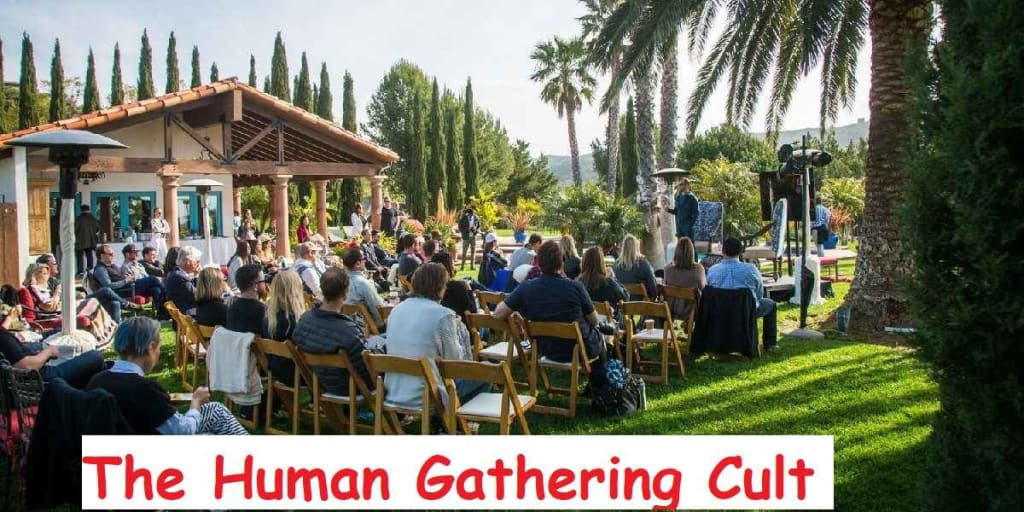Unveiling the Enigma: Exploring Human Gathering Cults
Human Gathering Cults

Human Gathering Cult: Understanding the Phenomenon
Human gathering cults, also known as group or social cults, are social groups characterized by their intense devotion to a particular ideology, leader, or set of beliefs. These groups often exhibit distinct characteristics and dynamics that set them apart from mainstream society. In this comprehensive exploration, we'll delve into the nature of human gathering cults, their psychological mechanisms, and the impact they have on individuals and society.
Understanding Human Gathering Cults
Human gathering cults typically revolve around a charismatic leader who exerts significant influence over their followers. These leaders often possess qualities such as charm, charisma, and persuasiveness, which allow them to attract and retain followers. The ideology or belief system espoused by the leader serves as the guiding principles of the group, shaping its culture, norms, and practices.
Psychological Mechanisms at Play
The allure of human gathering cults can be attributed to various psychological mechanisms that exploit human vulnerabilities and needs. These include:
Need for Belongingness: Human beings have an innate need to belong to social groups and communities. Cults offer a sense of belonging and camaraderie, providing individuals with a supportive and validating environment.
Search for Meaning: Many individuals are drawn to cults in search of meaning and purpose in their lives. Cult ideologies often offer simplistic explanations for complex phenomena, providing followers with a sense of certainty and direction.
Authority and Obedience: Cult leaders often wield authority and power over their followers, who may be conditioned to obey without question. This dynamic is reminiscent of Stanley Milgram's obedience experiments, wherein individuals were willing to administer potentially harmful electric shocks to others under the influence of authority figures.
Cognitive Dissonance: Cult members may experience cognitive dissonance when confronted with information that contradicts their beliefs or experiences. This psychological discomfort can lead individuals to rationalize or justify their involvement in the cult, further strengthening their commitment to the group.
Characteristics of Human Gathering Cults
Human gathering cults exhibit several key characteristics that distinguish them from other social groups:
Charismatic Leadership: Cults are typically led by charismatic individuals who possess magnetic personalities and persuasive communication skills.
Isolation: Cults often isolate their members from the outside world, restricting their contact with friends, family, and other social networks. This isolation serves to reinforce the group's ideology and maintain control over its members.
Control Tactics: Cults employ various control tactics to manipulate and influence their members, including thought control, emotional manipulation, and strict behavioral guidelines.
Financial Exploitation: Many cults engage in financial exploitation, coercing members into donating money or assets to the group under the guise of spiritual or ideological advancement.
Us vs. Them Mentality: Cults often foster an "us vs. them" mentality, portraying outsiders as enemies or adversaries who pose a threat to the group's survival.
Impact on Individuals and Society
The impact of human gathering cults can be profound, both for individuals who become ensnared in their web and for society at large. Some of the consequences include:
Psychological Manipulation: Cults can exert a powerful influence over their members, leading to psychological manipulation, dependency, and loss of autonomy.
Financial Ruin: Many cult members suffer financial exploitation at the hands of their leaders, leading to financial ruin and economic hardship.
Family Disintegration: Cult involvement can strain familial relationships, leading to estrangement and alienation from loved ones who may not share the same beliefs.
Violence and Extremism: In extreme cases, cults may resort to violence or extremism in pursuit of their goals, posing a threat to public safety and security.
Stigmatization: Cult involvement can carry a social stigma, leading to ostracism and discrimination against former members who seek to reintegrate into mainstream society.
Conclusion
Human gathering cults represent a complex and multifaceted phenomenon that continues to intrigue and mystify researchers and scholars. By understanding the psychological mechanisms, characteristics, and impact of cults, we can better equip individuals and communities to recognize and resist their influence. As we navigate the complexities of human gathering cults, let us remain vigilant and compassionate, offering support and understanding to those who may find themselves ensnared in their grasp.
Read More: Congregational Worship: Making the Ceremony Common
About the Creator
Informative Blog
We have created this website to provide users or readers useful and authentic information about almost major topics and categories.






Comments (1)
Read More: https://www.informativeblog.co.uk/the-mysterious-human-gathering-cult/